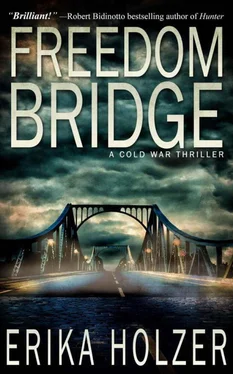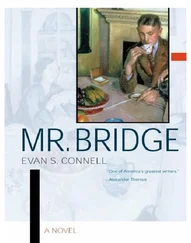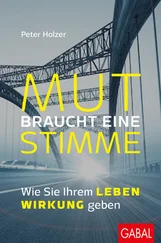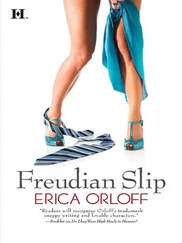On November 30, 1939, the Soviet Union invaded Finland. A miscalculation, as it turned out. While the Red Army outnumbered the Finns two-and-a-half to one, the Soviet troops were ill-equipped for the freezing, snowbound, winter weather. And thanks to Stalin’s 1936-1938 purges of the Red Army’s officer corps, there were no competent commanders. Despite fierce Finnish resistance and substantial support from the Allies, nature proved determinative. Not until the spring of 1940, after the snow had melted, were more able commanders available to lead a new Red Army offensive. The Finns finally capitulated, relinquished territory that the Soviets coveted, and Dr. Kiril Andreyev got to spend a few months mostly treating frostbite cases.
In mid-1940, the Soviets took over Latvia, Lithuania, and Estonia. Aleksei was posted there to suppress anti-Soviet sentiments. But the tide turned on June 22, 1941 when the formidable Nazi war machine attacked the Soviet Union in Operation Barbarossa. Aleksei, by then a lieutenant in the NKVD, was recalled to Moscow to hunt Nazi agents.
Kiril, already in Finland, spoke some English. He was sent to the Eastern Front—to Murmansk—where Soviet doctors were needed, and where the Germans were already experiencing huge casualties. Murmansk, not far from Russia’s borders with Norway and Finland, was the largest city north of the Arctic Circle. Being a port city—a crucial link to the Western World—it was expected to play a large role in the Soviet Union’s receipt of American and other allied Lend Lease. By September 1941, three months after the German invasion of the Soviet Union, Lend Lease war materiel began to flow by Arctic convoys into Murmansk—tanks, artillery, ammunition, airplanes, trucks, and jeeps. As grateful as Stalin was for American and allied assistance, and as much as he understood how necessary it was for Americans to be stationed in Murmansk—how else to manage the countless tons of materiel flooding the port?—his paranoia dictated there be as few Americans as possible.
Even so, there were enough Americans for Kiril to hone not only his English, but a lot of American slang as well. Over time, he realized his NKVD watchers had lost minute-by-minute interest in him. Having settled into a routine, they were satisfied he was somewhere on the base; after all, there was nowhere for him to go. Taking full advantage of this sliver of independence, Kiril made it a practice whenever he was treating his American patients for relatively minor ailments—frostbite, alcohol poisoning, pneumonia, broken limbs, and accidental gunshots—to learn everything the GIs were willing to share with him about their country. Its culture and geography. Its economic system and how the free market actually worked. Fascinating accounts of individual rights. And most important, America’s Declaration of Independence and Constitution . Kiril took a kind of defiant pleasure in this last, knowing that it would be treasonous for him to possess a copy of either document!
One day, as he set the broken arm of an American GI with a legal background, Kiril and the GI were so deeply engaged in discussion that he barely noticed how new patients were lining up just outside the clinic door. Until he realized that the first man in line wore the uniform of a Soviet Air Force officer who was pressing a bloody rag against a gash just under his hairline. Quickly finishing up with the American GI, he gestured for the officer to step forward.
“Your English is excellent,” the officer said.
Kiril’s jaw tightened.
How much did you overhear?
“My name is Stepan Brodsky,” the Soviet Air Force officer said with a smile, then added sotto voce , “You have nothing to fear from me, doctor.”
Kiril studied the man. They were about the same height, though the Russian officer was a bit more muscular. His blond hair was closely cropped, his eyes hazel. But what impressed Kiril was Stepan Brodsky’s ability to turn his inquiring eyes into blank unreadable discs depending on whom he was talking to.
What made them fast friends over time was the discovery that they both lived and breathed the same dream—defecting from the Soviet Union to the United States of America.
When Stepan was reassigned to Moscow, he and Kiril vowed to keep in touch.
The war went on. As materiel continued to flow from Arctic convoys into Murmansk American servicemen remained, giving Kiril the chance to become more and more fluent in American English and the opportunity to learn more and more about his devoutly-wished-for destination: the United States of America.
* * *
When the war ended in 1945 and the Murmansk pipeline was shut down, Kiril was ordered back to Moscow. He looked up his brother Aleksei, now a captain in the NKVD, hoping to enlist his assistance in finding their Aunt Marissa. Aleksei offered to help, but either the war or the NKVD had buried all traces of her. As for his inquiries about Stepan Brodsky, Kiril learned his friend had been drafted by the NKVD to be a translator in the Soviet zone of Berlin. Although Brodsky had been admonished not to fraternize with anyone outside the NKVD, the two were soon in contact.
Kiril began looking for work as a physician. Although his medical education had not been of the best quality and not nearly long enough, his practical experience in Finland and Murmansk had turned him into a more than capable generalist. But with so many war veterans returning home, there was a surfeit of doctors. For the next few years Kiril took whatever medical work he could find. Drawing blood at laboratories. Filling in at emergency rooms. Assisting physicians at public health clinics. Taking x-rays at special Communist Party hospitals.
One day, about six years after he’d left Murmansk, Kiril was working as a nurse in a private Kremlin hospital reserved for top officials. During an operation, an anesthesiologist—a high-ranking Politburo member—collapsed from what later proved to be a heart attack. While attendants prepared to operate, the chief surgeon instantly turned to Kiril and asked if he knew anything about the IV anesthesia drip in the patient’s arm.
“I do,” Kiril replied.
The surgeon—muttering that if the patient died, all of them would no doubt suffer the same fate—handed Kiril the instructions. Kiril kept the anesthesia flowing, the surgeon removed an about-to-rupture appendix, and there were smiles and handshakes all around. The appreciative and renowned surgeon, Dr. Mikhail Yanin, took Kiril under his wing, taught him how to operate a heart-lung machine—its purpose to bypass the heart during open-heart surgery—and used Kiril in so many operations that he became one of Moscow’s leading heart-lung physicians. As such, he was invited to join Yanin’s heart surgery team.
New Year’s Day, 1960—a national holiday in the Soviet Union that traditionally begins with a late dinner on New Year’s Eve. Smoked fish, sliced sausage, steaming borscht, black bread—and non-stop vodka toasts that undoubtedly had caused last night’s twelve-car pileup on an ice-covered highway leading to the hospital. Dr. Kiril Andreyev sighed inwardly. “What time is it?” he asked a technician.
“Twenty past eight, doctor.”
Kiril didn’t bother to mask his frustration. His eyes, a deeper brown than his hair, were somber .The habitual set of his mouth was firm, masking tight control. And endurance. Occasionally, one corner of his mouth slipped down, suggesting a touch of melancholy.
He sat on a low stool, monitoring the control panel of a boxlike machine on wheels. After examining the pump-heads on top, he followed the downward flow of colorless liquid through clear plastic tubing. The flow was unimpeded.
Читать дальше












